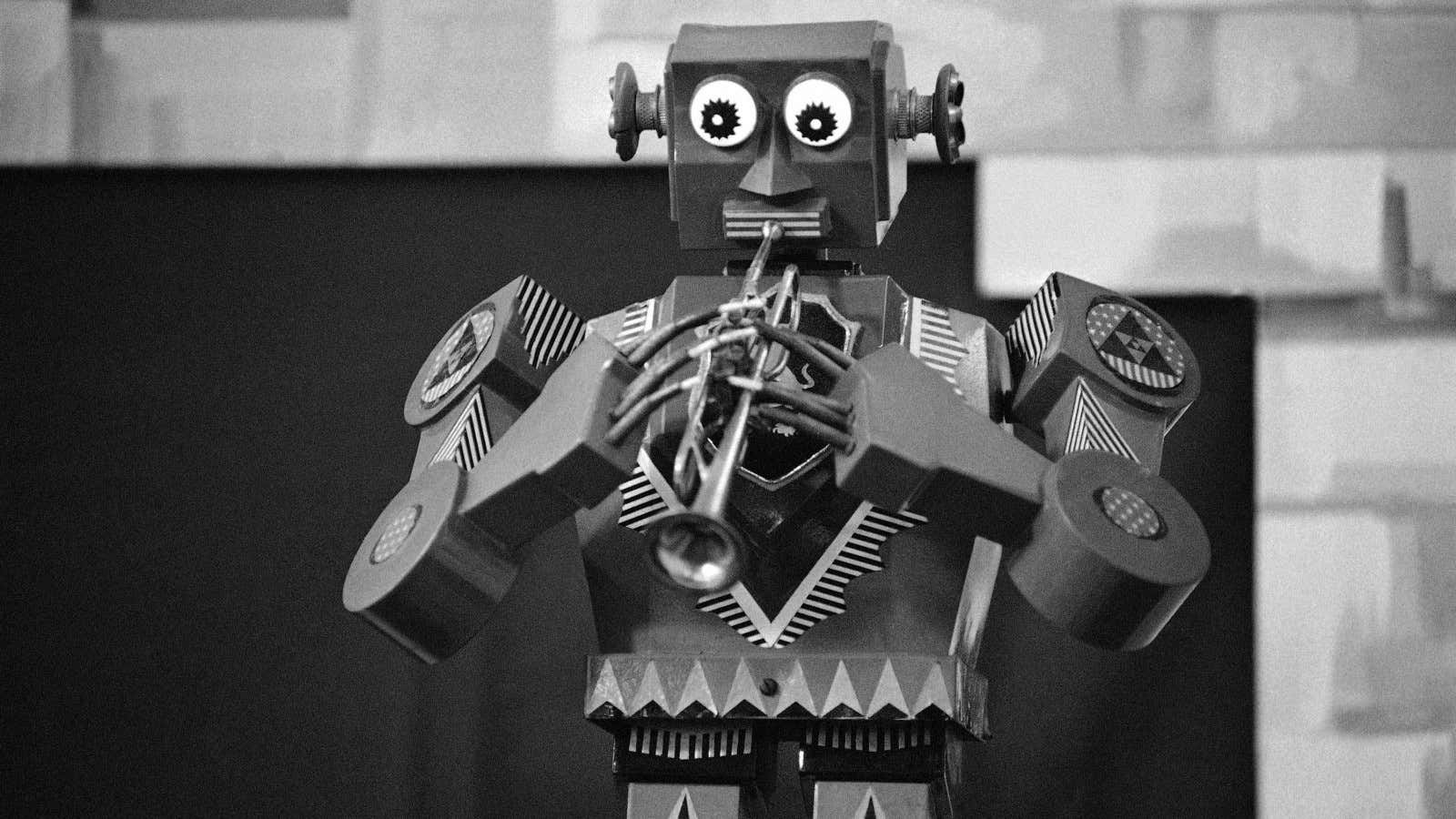If you thought your daily grind was on the way to being wiped out entirely—replaced perhaps by IBM’s Watson—think again.
A study of 2,000 individual work activities led by global consulting firm McKinsey suggests that our jobs aren’t going to be automated so much as they will be redefined. The authors state:
A focus on occupations is misleading. Very few occupations will be automated in their entirety in the near or medium term. Rather, certain activities are more likely to be automated, requiring entire business processes to be transformed, and jobs performed by people to be redefined, much like the bank teller’s job was redefined with the advent of ATMs.
The research’s interim findings suggest that up to 45% of the activities that make up our jobs ”can be automated by adapting currently demonstrated technologies.”
It’s not just low-skill, low-wage jobs that will be affected—automation also could take over many of the workday tasks of doctors, financial managers, and senior executives. Just using technology already in existence, activities that currently consume more than 20% of the average CEO’s working hours could become automated, McKinsey says.
In 2013, a report from Oxford University claimed that 47% of total US employment was at risk from computerization. McKinsey’s simple but nuanced distinction, however, offers an interesting take on the ongoing debate on the future of our work.
While keen not to gloss over the potential risks of greater automation (primarily job losses but also data privacy and regulatory issues), the authors remain positive about the results it can offer companies:
Employees [could] focus more on tasks that utilize creativity and emotion. Financial advisors, for example, might spend less time analyzing clients’ financial situations, and more time understanding their needs and explaining creative options. Interior designers could spend less time taking measurements, developing illustrations, and ordering materials, and more time developing innovative design concepts based on clients’ desires.
They add:
The organizational and leadership implications are enormous: leaders from the C-suite to the front line will need to redefine jobs and processes so that their organizations can take advantage of the automation potential that is distributed across them.
Of course, for all of the wonderful things technological innovation brings, there are some things that we humans can do so much better than robots. For top-level managers trying to sort all this out, McKinsey simply advises: “Keep an eye on the speed and direction of automation, for starters, and then determine where, when, and how much to invest in [it].”
Which jobs are most and least at risk of automation, according to Oxford University?
